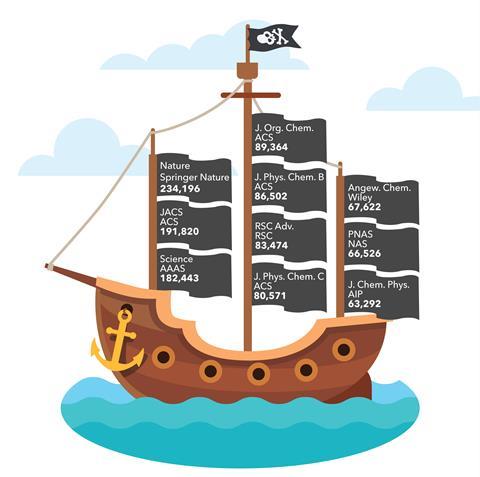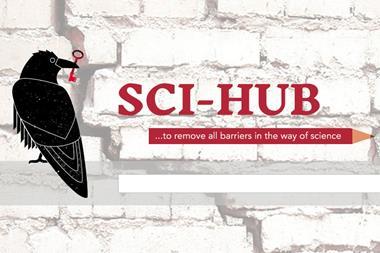‘Black’ open access is forcing a shake-up of chemistry journal publishing
Open access (OA) is, depending on your viewpoint, either the hottest debate in academia or a painful exercise in publishers, researchers and libraries passing around a rather hefty bill. No one doubts that all of that good quality, peer-reviewed research should be available as widely as possible; the issue, described with terms such as ‘gold’ and ‘green’ OA, is how you pay for the mechanics of it and a happy solution is yet to be found.
Impatient for a resolution, some researchers opt for a third route of questionable legality: so-called ‘black’ OA. Here, obtained credentials are used to grab papers behind a paywall and stick them up for free. Black OA proponents paint themselves as information vigilantes who want to make science available to all; the publishers (and the law) consider it copyright theft, a leeching of revenues that make the whole academic publishing cycle sustainable.

Now, Bastian Greshake from the Goethe University of Frankfurt, Germany, has analysed one of these black OA sites, Sci-Hub, run by Kazakhstani computer programmer Alexandra Elbakyan and well known for its legal battle with Elsevier.1 Tracing the DOIs of some 62 million papers available on Sci-Hub, Greshake found that 12 of the 20 most-pirated journals solely focused on chemistry focus, with three others also serving the chemistry community. Nature was, unsurprisingly, the most-pirated, with the Journal of the American Chemical Society and Science a strong second and third respectively. If you expand the data set, an astonishing 37 of the top 50 most-pirated journals have a sole or major chemistry focus (as opposed to medicine, biology or physics). Both the Royal Society of Chemistry and American Chemical Society graced the top four ‘overrepresented’ publishers (those whose journals saw a disproportionately large number of downloads), sitting only behind Springer Nature and Elsevier in Greshake’s ranking.
The solution is still up in the air, though one option may already exist. RSC Advances, the 7th most-pirated journal on Sci-Hub at the time of the study, adopted gold OA this year – a model that means its papers can be shared, reposted and made available by all once published. As gold OA means science papers cannot be pirated, it could push more to adopt the model. Whatever the answer, one thing is clear: Greshake’s study shows that chemistry has a piracy problem – and one it can’t afford to ignore.
References
1 B Greshake DOI: 10.1101/124495 (pre-print)












No comments yet